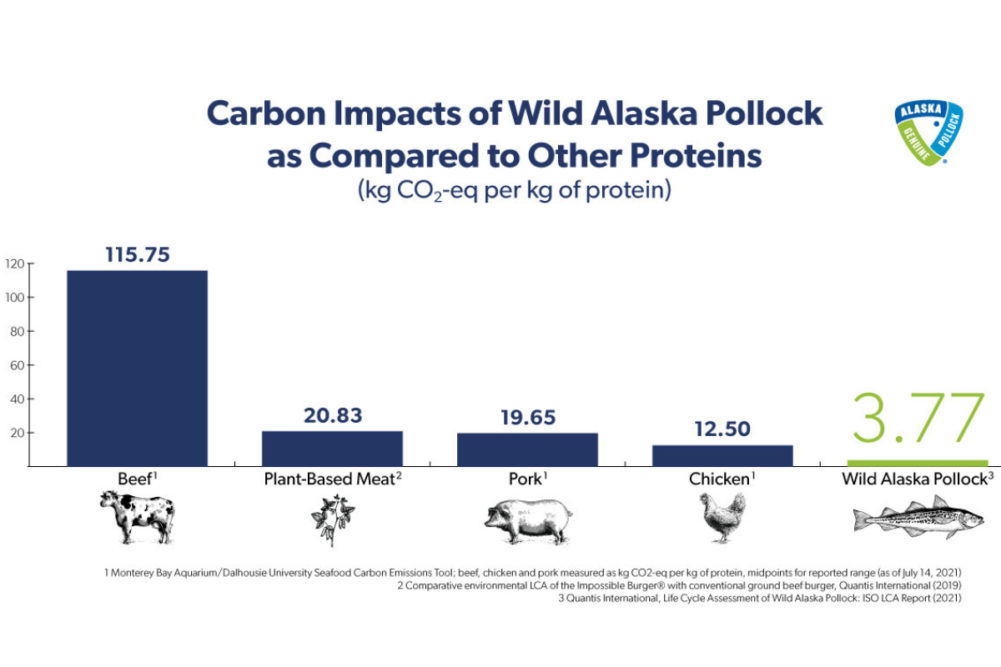SEATTLE — The Association of Genuine Alaska Pollock Producers (GAPP) has announced Wild Alaska Pollock as one of the most climate-friendly proteins in the world following the completion of a comprehensive Life Cycle Assessment (LCA).
GAPP began the LCA process in 2019 in partnership with the sustainability consultancy Quantis, to analyze several key impact categories such as global warming potential, energy use, use of land and water resources and waste outputs.
According to the assessment, a Wild Alaska Pollock fillet is 3.77 kg CO2-eq per kg of protein, significantly lower than comparative statistics reported for other protein sources:
- Wild Alaska Pollock: 3.771
- Chicken: 12.502
- Pork: 19.652
- Plant-Based meat: 20.833
- Beef: 115.752
"One of the things that we can all do to ensure a healthy planet for generations to come is to choose proteins that are solutions to climate change—and there's nothing better for you and for our planet than Wild Alaska Pollock," said Craig Morris, GAPP chief executive officer. "Seafood consumption in the United States is at an all-time high and Wild Alaska Pollock is the most consumed wild-caught whitefish thanks to its quality, affordability, versatility and nutrition. These LCA findings could not come at a better time, as our own research shows sustainable food options are increasingly important. Consumers can now be assured that their favorite fish is one of the most climate-friendly protein options available on earth."

